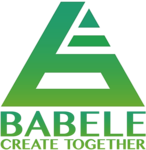| Product | |||
|---|---|---|---|
| Review & Ratings |
No reviews available |
No reviews available |
|
| Description |
Babele is a cuttingedge innovation software designed to help organizations foster creativity and drive product development. This platform offers a userfriendly interface that enables teams to collaborate on ideas, manage projects, and track innovation initiatives seamlessly. Babele supports features for brainstorming sessions, allowing users to capture and organize creative thoughts effectively. T... Read more about Babele |
Ezassi is an innovative idea management software designed to help organizations capture, evaluate, and nurture ideas from both internal and external sources. The platform provides a collaborative environment for teams, employees, and external stakeholders to submit, discuss, and refine ideas in realtime. Ezassi uses robust evaluation tools, including voting and ranking systems, to ensure the best ... Read more about Ezassi |
|
| Free Trial |
Available |
Available |
|
| Starting Price |
$2900 Per Year |
$10000 Per User |
|
| Category Features | |||
| Other Information | |||
| Deployment | Cloud Hosted | Cloud Hosted | |
| Devices Supported | Web-Based, | Web-Based, | |
| Pricing Model | Usage Based | Per User | |
| Support | Email, Phone, Chat | 24x7 Support, Email, Phone | |
| Target Company Size |
Self-Employed,
Small-Business,
Midsize-Business,
|
Self-Employed,
Small-Business,
Midsize-Business,
|
|

